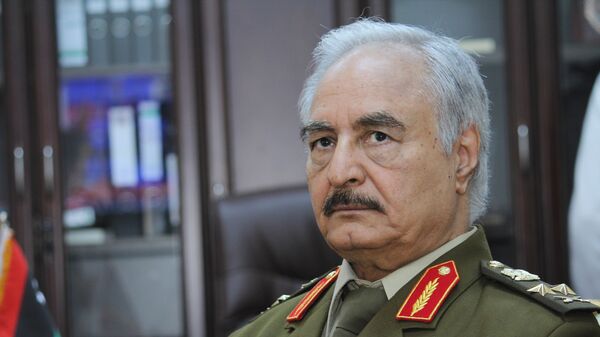"For example, the dismantling of all militias, disarming them, and giving guarantees to those who cooperate in that regard […] Amongst the tasks of such a phase is the formation of a new constitutional committee, and a proposed referendum law, rebalancing the oil sector and its revenues, addressing the challenges facing people, and making their lives easier, and especially addressing the liquidity crisis, and commencing the unification and proper management of state institutions, after years of chaotic divisiveness", Haftar said in an interview with the Al-Marsad newspaper.
In an interview with the Al-Marsad newspaper, Haftar also said that after the LNA liberates the Libyan capital from forces loyal to the rival western Government of National Accord (GNA), several tasks will need to be accomplished as part of a transitional period in order to switch to a so-called permanent phase.
The LNA commander explained that the transition period tasks will include dismantling all the bodies set up by the so-called Skhirat Accord, which laid the foundation for the creation of the UN-backed GNA. Haftar argued that the accord had not fixed the Libyan conflict, and had instead fueled several other crises.
Since early April, the LNA has been engaged in an offensive to gain control over Tripoli. The GNA has been waging a counteroffensive to prevent the LNA from capturing the city.
The death toll in the renewed violence exceeds 690, including 41 civilians, while thousands more have suffered injuries, according to the World Health Organization.
The security and political situation in Libya has been unstable since the 2011 revolution, as the country is still divided between two rival authorities: the LNA-backed parliament rules over eastern Libya, while the GNA controls the other part of the country.




